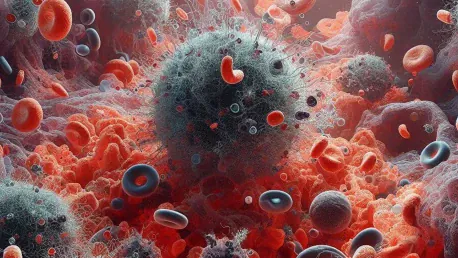In a significant development, Monte Rosa Therapeutics, a biotechnology company based in Boston, has finalized a highly lucrative global exclusive development and commercialization license agreement with Novartis valued at up to $2.1 billion on October 28, 2024. Monte Rosa Therapeutics is focused on the advancement of VAV1 molecular glue degraders (MGDs), targeting a Phase I drug candidate, MRT-6160. The current drug is being investigated for various immune-mediated conditions in an ongoing Single Ascending Dose (SAD)/Multiple Ascending Dose (MAD) healthy volunteer study.
Under this strategic agreement, Novartis will provide Monte Rosa with an upfront payment of $150 million. These funds grant Novartis exclusive worldwide rights to develop, manufacture, and commercialize MRT-6160 and other VAV1 MGDs. Additionally, Monte Rosa stands to receive up to $2.1 billion through various development, regulatory, and sales milestones, beginning with the commencement of Phase II clinical trials for MRT-6160. Monte Rosa will also benefit from tiered royalties on net sales outside of the United States.
Agreement Scope and Responsibilities
According to the terms of the agreement, Novartis will manage all clinical development and commercialization efforts starting from Phase II onwards. Meanwhile, Monte Rosa will complete the ongoing Phase I clinical study and co-fund any Phase III clinical development. This collaboration ensures that both companies will share profits and losses from the manufacturing and commercialization of MRT-6160 within the United States. The partnership aims to leverage the strengths and resources of both companies to drive the successful development and market penetration of MRT-6160.
The primary objective of this partnership is to accelerate and expand the clinical development of MRT-6160. Monte Rosa CEO Markus Warmuth stressed the strategic significance of this collaboration, asserting that it validates Monte Rosa’s QuEEN discovery engine. This innovative platform is designed to develop selective and safe MGDs for targets previously considered undruggable, with a particular focus on immunology, inflammation, metabolism, and genetic diseases.
MRT-6160 and Its Potential
MRT-6160 is an investigational degrader of VAV1, which plays a critical role in T- and B-cell receptor signaling. Preclinical studies have demonstrated that MRT-6160 effectively degrades VAV1, leading to a reduction in cytokines linked to immune-mediated conditions without affecting other proteins. These promising preclinical results include reduced joint inflammation and autoantibody production in a collagen-induced arthritis model, as well as inhibited disease progression in a T-cell transfer-mediated colitis model. These findings suggest that MRT-6160 holds significant potential in treating multiple immune-mediated conditions.
The collaboration’s importance extends beyond financial terms; it aims to bring innovative treatments to patients with high unmet medical needs. Fiona Marshall, President of Biomedical Research at Novartis, expressed enthusiasm about the partnership, highlighting Monte Rosa’s success in the MGD field and the potential impact of MRT-6160. Marshall reiterated Novartis’ commitment to discovering new therapeutic options and leveraging innovative approaches to address unmet medical needs, highlighting the promising future of this collaboration.
Strategic Implications and Future Prospects
On October 28, 2024, Monte Rosa Therapeutics, a Boston-based biotech company, entered into a major global agreement with Novartis worth up to $2.1 billion. The deal gives Novartis exclusive worldwide rights to develop, manufacture, and commercialize molecular glue degraders (MGDs), particularly focused on the Phase I drug candidate MRT-6160. This drug is currently in a Single Ascending Dose (SAD) and Multiple Ascending Dose (MAD) study involving healthy volunteers for various immune-mediated conditions.
As part of this strategic partnership, Novartis will provide Monte Rosa with an upfront payment of $150 million. Monte Rosa has the potential to earn up to an additional $2.1 billion through a series of development, regulatory, and sales milestones, beginning with the launch of Phase II clinical trials for MRT-6160. Moreover, Monte Rosa will receive tiered royalties from net sales outside of the United States. This agreement marks a significant step forward for both companies in their efforts to advance innovative treatments.









